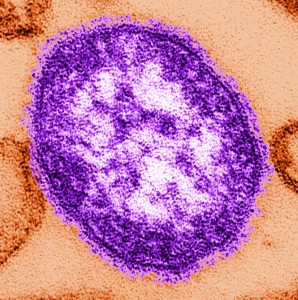 During the past month, the American public has been bombarded with news reports about a continuing measles epidemic, as well as an extensive debate about whether measles vaccinations should be required to stop this epidemic and prevent future ones from developing.
During the past month, the American public has been bombarded with news reports about a continuing measles epidemic, as well as an extensive debate about whether measles vaccinations should be required to stop this epidemic and prevent future ones from developing.
In fact, all states require vaccinations against many contagious diseases, including measles. But there are exceptions, and the exceptions are broader in some states than others. Only a handful of states limit exceptions to medical necessity – for example, a child whose immune system is compromised by chemotherapy should not receive immunizations. Most states allow religious exemptions, so parents who are, for example, Christian Scientists need not vaccinate their children in contravention of their religious beliefs. However, about a third of the states, including Wisconsin, also allow much broader exemptions based on “conscience” or “philosophical reasons.” These broader exemption categories often can be invoked with little or no effort on a parent’s part, such as by checking a box on a form and signing it, and thus have the potential to erode the requirement if enough people choose not to vaccinate.
We need to consider a few things as this debate unfolds. First of all, measles has always been a terrible disease, cartoon portrayals of its red spots notwithstanding. It kills many thousands of children world-wide every year, and even in first world countries with good health care, some children who catch measles will not survive. It bears mentioning that even those who survive will be miserably ill: I am of an age where the vaccine was not available, and many decades after having the measles, I still remember how sick I was: 105 fever, delirium, chills, and headache. This is not something I would wish on any child.
Secondly, there seems to be a shrillness to the public debate, with certain politicians insisting that parents have a Constitutional right to decide about their children’s lives, even if that means deciding against vaccines. Actually, that has never been the law in this country. Courts have always upheld the right of the government to act to protect the public from disease, and this includes the power to require quarantines, vaccinations, and public health measures such as fluoridated water. These governmental powers have survived innumerable court challenges because government has always been recognized as the most efficient entity to protect the public as a whole from harm. Where children are concerned, the State has the power to insist on certain minimum protections, even where the child’s parent disagrees. Even a parent’s claim of religious liberty does not enable that parent to escape accountability for a child’s health and safety – the U.S. Supreme Court in Prince v. Massachusetts famously declared that while a parent could choose to be a martyr to religious belief, that same parent could not force a child to be a martyr. While the Court has shown great respect for parental child-rearing decisions, and has insisted that a fit parent’s decisions are entitled to deference, it has never suggested that parents have unlimited discretion when it comes to the health or safety of their children. The religious exemptions to vaccination requirements granted by some state laws are not constitutionally required, but are instead political decisions to avoid offending certain citizens.
In my opinion, the broad “philosophical objection” exemption to vaccinations has no place in Wisconsin law or the law of any state. It enables parents to base their decision not to vaccinate on vague rumors or fear-mongering – such as the infamous and now discredited study claiming a link between autism and vaccinations. Such a broad and vague exemption also makes it too easy for parents to claim the exemption even if their true reason for not vaccinating is that they just didn’t get around to it. This would be bad enough if it endangered only the vaccine-refusers’ children, but in fact it endangers anyone in the society who cannot yet be vaccinated, such as newborns, people undergoing chemotherapy or people whose immune systems are compromised by diseases.
There are enough dangers that we cannot protect our children from – in my opinion we should use our laws to protect our kids from things that we can prevent.

Roald Dahl’s seven-year-old daughter died of measles. Here is an article that relates the open letter he wrote encouraging parents to take the disease, and vaccination, seriously. His daughter took a turn for the worse after she appeared to be recovering.
I often find it strange that there is allowance for a religious waiver, yet there is no room for a philosophical waiver. It seems to me a strange line for the government to walk. I haven’t done my own research, but I wonder what factors go distinguish whether a belief is philosophical, and what is religious?
Must there be a supporting scripture verse? Or, does a particular religious denomination need to include vaccination aversion in its statement of faith? My guess is that such an organization would quickly be deemed extremist, fundamentalist, and quickly discredited. Parents seem to have an impossible burden to bear if they wish to waive vaccinations.